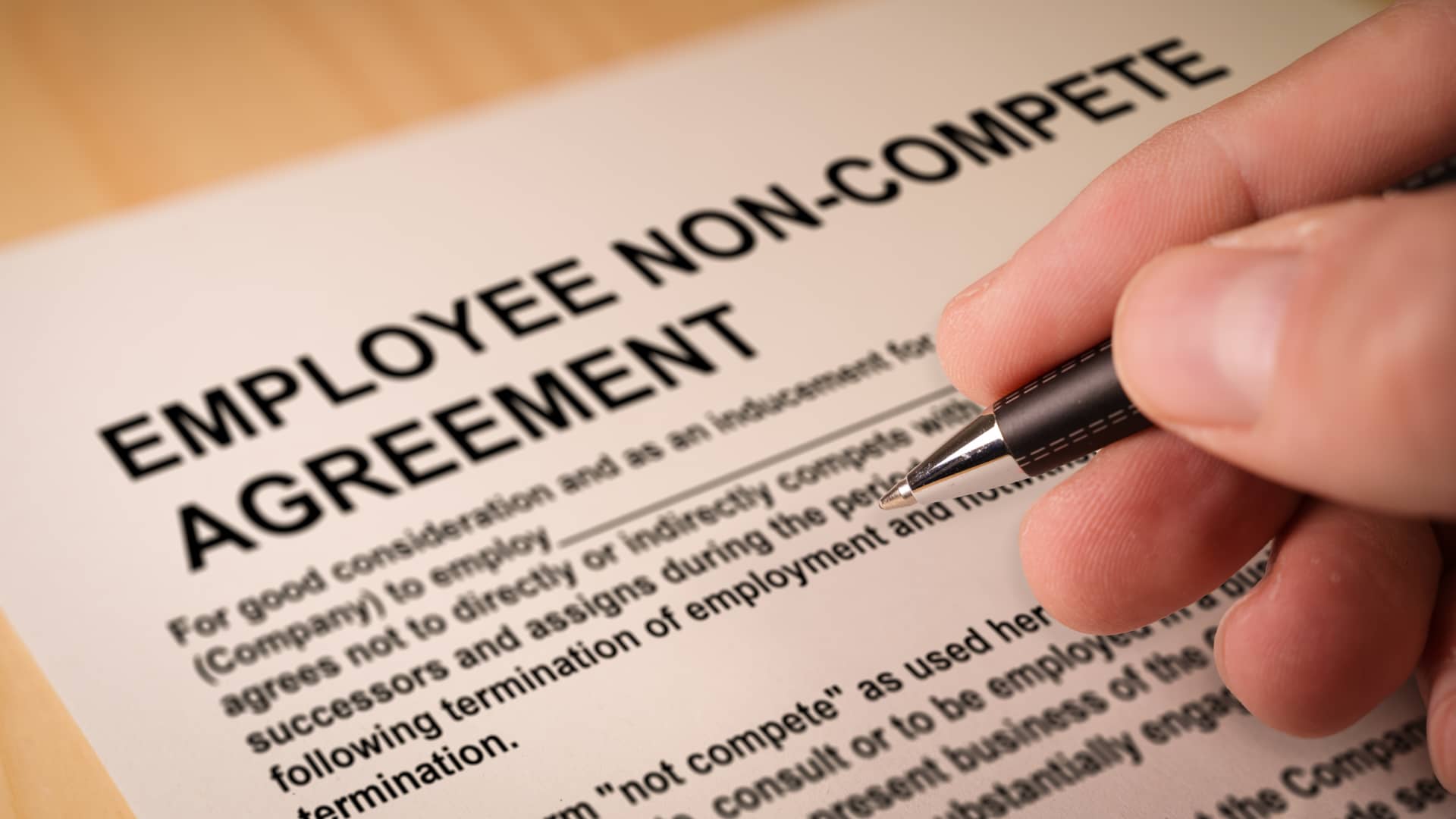Tanaonte | Istock | Getty Images
The future of a Federal Trade Commission ban on noncompete agreements, scheduled to take effect this fall, is unclear after a preliminary ruling from a federal court last week.
Nearly one in five Americans are subject to a noncompete agreement, an estimated 30 million people, according to the FTC. The agreements prevent workers from taking a new job with competitors or starting a new business in the same industry.
The Biden administration first proposed banning noncompete agreements in January 2023. In response, the FTC received more than 26,000 comments, with 25,000 of them were in favor of the rule.
Legal challenges on noncompete ban
Judge Ada Brown, a Trump-appointed federal judge in Texas, issued a preliminary order against the FTC ban last week in a lawsuit brought by Ryan LLC, a Dallas-based tax services firm. The firm uses noncompete agreements to keep competitors from hiring away its workers and to keep workers from poaching firm clients. Ryan argued the FTC overstepped its legal authority to ban noncompete agreements.
The court agreed the FTC lacks authority to make the sweeping rule and said the plaintiffs are likely to succeed on the merits of the case.
The injunction came just days after a Supreme Court decision to overturn what’s known as the Chevron doctrine. That decision gives judges more power to challenge federal agencies’ rule-making authority.
Brown’s injunction has a limited scope: It only bars the FTC from enforcing the ban against the plaintiffs, including Ryan LLC as well as U.S. Chamber of Commerce, the Business Roundtable and other business groups. It does not extend to member companies of those groups.
The judge said that she intends to rule on the merits by the end of August, and experts anticipate business groups will try to make the case for the judge to issue a nationwide ban.
What a noncompete means for workers
Workers should know if they have one of these agreements and the scope of it. Employment attorneys say clients are often unaware the impact noncompete agreements can have or think they are unenforceable.
“Look at how much deferred compensation you have tied to it, or that you have to pay back if you violate it,” said Peter Rahbar, an employment attorney.
While several states ban or restrict noncompete agreements, having one can make it difficult to find another job.
“Part of the problem is some employers won’t even talk to a potential candidate if they have a noncompete,” said Rahbar, who is the founder of the Rahbar Group in New York City.
Noncompete enforcement can be ‘heavy handed’
Even with state bans, some companies aggressively enforce noncompete agreements. They are not limited to highly compensated workers. The agreements are often written to require the employee to pay all legal fees in the event an agreement is challenged. So even if an agreement may be on shaky legal ground it can be difficult to break.
“What we end up telling the employees is that if they get sued, they will likely, even if they win, have to pay roughly $100,000 to $150,000 in attorney fees,” Daniel Kalish, an attorney with HKM Employment told the Federal Trade Commission in support of the ban at a hearing last year.
One executive told CNBC that despite being laid off from his multi-national employer, the noncompete he had signed barred him from working in the industry for five years.
“It would have cost me half a million to a million dollars to fight, with no guarantee,” said the executive, who asked to remain anonymous for fear of being sued by that former employer. “The problem is, what are you gonna say? No, I’m not gonna sign this, then you’re not getting promoted.”
Despite efforts to ban noncompete agreements, Rahbar says companies have gotten more aggressive about using them.
“I’ve seen employers just trying to jam them in and be really heavy handed in enforcing them in some cases,” he said.
If you’re asked to sign a noncompete
Read any document you are asked to sign and better yet, ask for a copy and have an attorney review it.
Experts say you may be able to negotiate the terms of a noncompete, such as the length of time the agreement is effective, its geographical reach or how competition is defined.
Also watch for contract language called a confidential information or proprietary information agreement, which employers also use to keep employees from releasing sensitive corporate information or trade secrets. This serves the same purpose as a noncompete.
While not everyone is in a position to negotiate, it probably won’t hurt to ask. “If it doesn’t work, they take the job anyway, but at least try,” Rahbar said.
